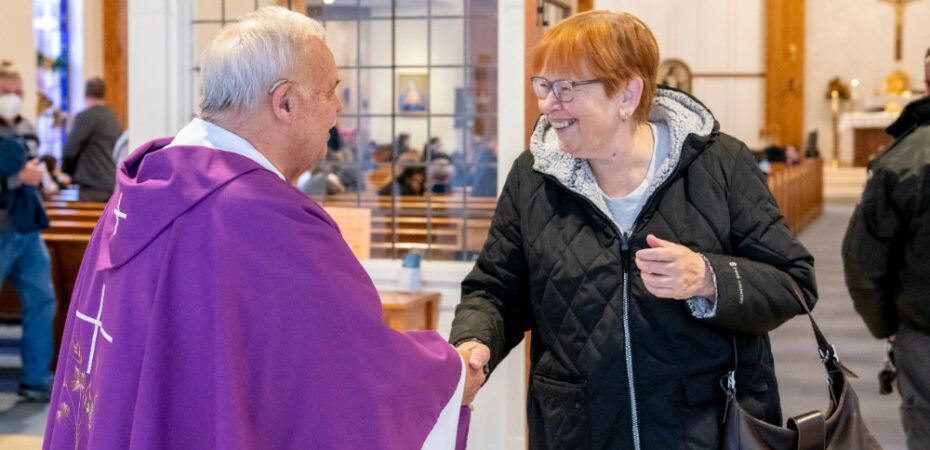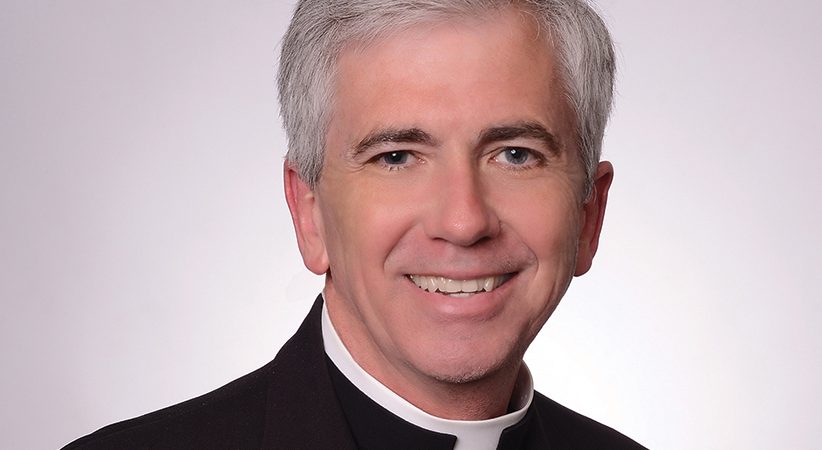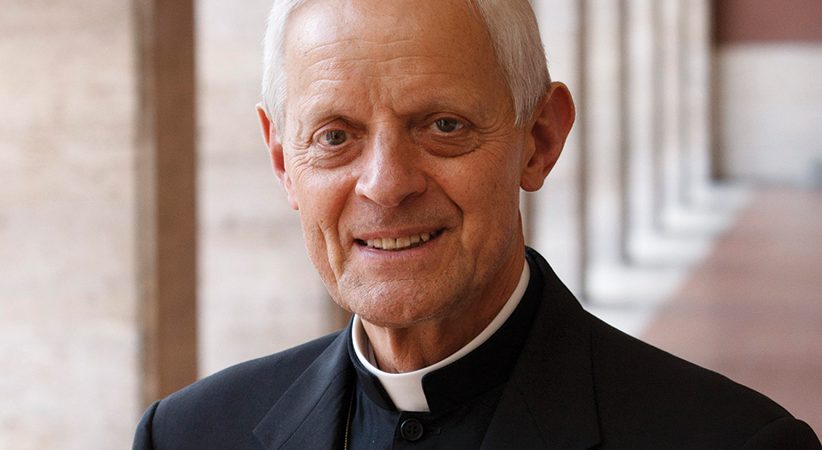Showing Concern for Parishioners
When priests engage people, people engage parishes
Owen Phelps Comments Off on Showing Concern for Parishioners
 When my friend Vic was alive, he would talk about coming to the United States from Lithuania via a German POW camp. He arrived in New York with a pregnant wife. Catholic Charities greeted them and provided train tickets to Chicago, “the second largest Lithuanian city in the world.”
When my friend Vic was alive, he would talk about coming to the United States from Lithuania via a German POW camp. He arrived in New York with a pregnant wife. Catholic Charities greeted them and provided train tickets to Chicago, “the second largest Lithuanian city in the world.”
When they arrived in Chicago, they were given a room and directions to a Lithuanian parish.
The next morning Vic was knocking on the rectory door, looking for help to find a job. The pastor set him up with a fellow countryman who took him along to his work at a factory and introduced him to the boss.
“The man said I couldn’t speak English so all I could do was clean toilets,” Vic recalled. “What did you do?” I asked him. “I cleaned toilets and learned English,” Vic replied.
Things were simpler when the local priest had a monopoly on literacy and personal connections to all the key players in a community. That’s a long way from today’s world. But whatever the circumstances, parishioners still have needs. Each Sunday, I look around the church, see mostly empty pews, and my heart goes out to the priest. Priest friends of mine once bemoaned “the hatched, matched and dispatched” who generally crawled out of the woodwork for baptisms, weddings and funerals. Now they are grateful when any of these are scheduled.
About three years ago, the Pew Research Center published a study examining how much congregants of the nation’s churches trust their clergy for advice. The study included people of all faiths, but enough Catholics participated to compare their responses to others in the sample. Across the board, Catholics relied less on the advice of clergy than did their other Christian counterparts. Only 8% of Catholics considered their relationship with their pastor as “very close,” compared with 25% of Protestants. Another 54% of Catholics considered their relationship “somewhat close,” but fully 39% said, “Not close.”
We can attribute some of this difference to the larger size of Catholic parishes. We can also explain some of it by the need for priests to provide a slate of sacramental services that other clergy don’t typically provide. But explanations are not solutions.
My concern is that if the laity’s relationship with a pastor is largely peripheral, how likely is it that their relationship with a parish is going to be more than that? If we want to engage parishioners, we have to show concern for them and address the issues they really care about.
The survey had more to say. When it came to trusting parish priests “a lot” with life issues, here is how the priests fared with their lay members: marriage relationships, 30%; parenting, 23%; anxiety or depression, 15%; personal finances, 7%; abortion, 34%; immigration, 16%; global climate change, 8%.
Obviously, a priest cannot control how much trust he inspires among his parishioners about anything. And not all topics are created equal (as the range of responses clearly shows). But a priest can certainly influence how much trust he inspires among his people, and trust is built on relationships, not official titles. Priests who don’t make an overt effort to touch the lives of parishioners and show concern for the issues that shape their lives will be marginalized.
We can also delegate and refer. If someone approached you with concerns about their marriage, can you connect them to someone with expertise in that field? Can your parish secretary or another staffer do the same if need be? When we help people, they usually respond favorably. And word gets around.
When we administer the sacraments, of course, we are helping people. But is this a time when we have to do more if we want to see more participation? The numbers tell us that it is.
OWEN PHELPS, Ph.D., is executive director of the Yeshua Catholic International Leadership Institute and author of the book “The Catholic Vision for Leading Like Jesus” (OSV, $15.95).





